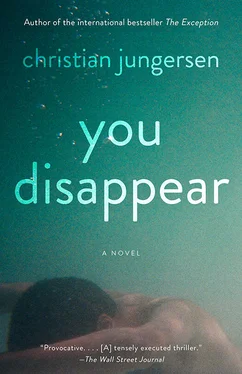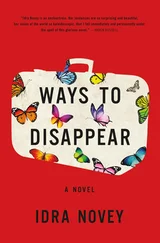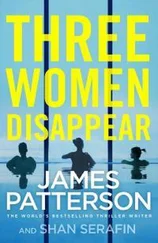“But I battered him. I hit my sick husband with a stainless-steel bowl from the coffee table. No one could forgive that.”
The light from Peter Mansfield is so strong that it hurts my eyes, even though they’re closed. I fear I’m going to go blind and want to raise my arms before my eyes, but I can’t move them. I want to move my knees off the sharp pebbles beneath them, but I can’t move my legs either.
“Nothing escapes the laws of Nature,” he replies. “Nothing comes into being unless the laws of Nature want it to. And that also applies to the things that you do to your husband.”
“But Niklas — that’s the worst. He found me on the floor when he was thirteen. I was drunk, I could have been dead. That’s something no son should see.”
“If it happened, it was Nature’s will for it to happen. Do you believe anything exists that is higher than the laws of Nature?”
“No.”
“Do you believe anything has more power than the laws of Nature?”
“No, I don’t think so.”
“Then you know that if your son sent you to the hospital to have your stomach pumped, it is nothing to blame yourself for. You couldn’t do anything else. It was Nature’s will; the laws of Nature compelled you to do it.”
“Yes, the laws of Nature.”
“You may rest now, my child. You are blameless. Nature bears the blame for you, and you are innocent once more.”
• • •
I fall forward upon the sand, unable to catch myself with my immobilized arms, and I kiss the stones on the path, knowing that the spirit of Nature resides in each and every one of them. Just as it resides in me. I can open my eyes now, and I look up into the dust motes that dance in the light of the sign in the sky, knowing that the spirit of Nature inhabits every single speck of dust upon the earth; just as it inhabits me. I know that the motes of dust have no soul, just as I have no soul. We are all children of Nature, and I have been set free.
I’ve been in the support group for half a year now, and this is our second death. I didn’t attend the first funeral; at the time, I didn’t feel like I knew the widow or the dead man well enough. But Solveig, the brilliant retired woman whose husband died last weekend, has been a font of intriguing thoughts about the situation we all find ourselves in, and I speak with her often on the phone. Several times I also met her goofy, confused husband, Torben, who was a department head in the Ministry of Justice before he suffered brain damage and started piling up trash in their yard.
Actually, we all thought that our next funeral would be Kirsten’s husband, who’s been hospitalized for months now. But sometime during the night on Saturday, after a dinner party that three of the women in the group had with their sick husbands, Torben had another stroke. When Solveig reached for him the next morning in bed, he was dead.
Lots of us from the group are attending the funeral, and Andrea’s been kind enough to offer me a ride. She and Ian have a converted van with a wheelchair lift in the back, so that he can get in the van without having to be lifted out of his wheelchair first, and when she pulls up outside our entry, he’s in the back, strapped down in his chair.
Ian’s brain injury affects his hormone balance, and one of the hormones must do something to his skin, for it has a strange pink sheen, and it looks as if it’s lost its elasticity and might split at any moment. As always, his motionless legs are gathered and hidden beneath a blanket, along with his catheter and colostomy bag. I don’t know if he even has two legs; perhaps they were destroyed in his mountaineering accident in Norway two years ago. Although I’ve met him a few times now, I still feel the urge to avert my gaze when I’m with him; I always make an effort to govern myself, and now I wave and smile at him through the windows.
I hop into the passenger seat and feel Ian and his wheelchair looming up behind me. It’s like being watched by a gigantic half-boiled prawn.
“Love … krrr … ly to see … krrr … you,” he says.
He’s got a PhD in biology, just like Andrea, and while he has no problem finding the right word, his muscular control’s so compromised that it can be exhausting for him to speak.
We talk about Torben and the hymns Solveig has selected for the ceremony, and we talk about what we think Torben must have been like before his strokes. The obituaries have described him as a powerful figure in the Ministry of Justice under Erik Ninn-Hansen, playing a key role in the Tamil Case that brought down the Conservative government in 1993. It’s difficult for us to imagine, as we’ve only known him as an affectionate klutz.
We also talk about Frederik’s coming court case. Andrea’s been convinced of his innocence from the start, and her support used to be very important to me. But I didn’t quite know what to think of it later, once it became clear to me that she believed all criminals were innocent. She’s definitely the intellectual in our group, always able to raise discussion to a higher plane. Now she says, as we drive to the church, “Four hundred years ago, people believed that the mentally ill had made a pact with the devil — meaning they were witches — and so they burnt them alive with the entire village looking on. Episodes like that from our past offend modern sensibilities, because now we take it for granted that of course the poor wretches shouldn’t be burnt or imprisoned because they’re mentally ill.
“But it won’t be very many years before people look back on our time now and think exactly the same thing about how we punish those who are cruel and violent and make foolish choices that end in crime. It’s medieval to think that these people want to be the way they are. Their brains just don’t function that well, and it’s obvious that they should enter treatment. They shouldn’t simply be locked up for years like another Natascha Kampusch.”
Ian chimes in from the back of the van. “In just twenty years … krrr … we’ll look back … on this time … as … krrr … utterly barbaric.”
They both laugh, but I don’t understand what’s so funny. Perhaps something we drove past?
“We’re living in a second … second … krrr … a second Renaissance, you know.”
“I’ve read that,” I say without turning to look at him.
Andrea parks in one of the handicapped spots close to the church and the three of us get out, but after she busies herself for a while in rearranging the blanket over Ian’s legs, she tells me to go on ahead. I get the sense that there’s something they’d like to deal with by themselves, so I make my way toward the church.
Solveig’s been very active in the Brain Injury Association, and several of her friends from there have come. Out in front of the church door I step to one side, to make room for the walking-impaired, and I say hello to Anton from our group. He’s come with his wife, who I haven’t met before. Both of them hold themselves upright and sport golf tans, fastidious hair, and expensive taste in clothes.
Anton introduces us, and his wife gives me a friendly smile, gathering her long elegant coat about her and saying, “I’ll nip in and take one of them … those things you use when … with the … that you eat with … you eat and you … here in … when you’re going to … sing with it … I’ll take one of those.”
It took a couple of days at Frederik’s rehab center for me to discover that if I wanted to chat with a patient while waiting for my husband to finish his treatment session, I should approach one of the ones who looked the most severely brain-damaged. Sometimes the ones with serious physical handicaps were brighter and more articulate than the personnel, while the patients who moved about without difficulty always had major problems with language or cognition.
Читать дальше



![Ally Carter - [Gallagher Girls 01] I'd Tell You I Love You But Then I'd Have to Kill You](/books/262179/ally-carter-gallagher-girls-01-i-d-tell-you-i-lo-thumb.webp)








